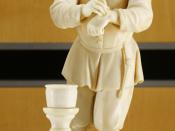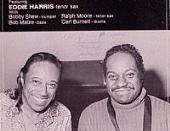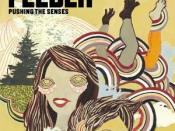What exactly however is ÃÂthe truthÃÂ? And how do we uncover what is true and real in our world? As was once quoted by Bernardo Provenzano, ÃÂDo not disbelieve everything that people will say to you; nor however should you believe in everything that they say. Always seek to find out the truth before speaking; and remember that one piece of evidence is never enough to be certain of something - in fact you should need three pieces of evidenceÃÂ (Follain 266). The nature of being human is to seek an understanding of the world and all that it comprises; however how does one come to know that which is true about the world? Just how do we determine that we indeed do have possession of the truth? Human knowledge has, and will, continue to advance and sophisticate as we continually seek out an understanding of the world.
How individuals interpret what is real or true for their external environment differs.
Each individual has a unique process for reaching a conclusion about all things present in their world. A complex combination of prior experience, previously acquired knowledge, and individual thought processes will all influence the overall conclusion that is reached regarding a particular event, situation, person, physical object or action. These factors influence the interpretation that is formed to gain an understanding of the external environment that is presented before us (Wikipedia 2007).
The five human senses are responsible for gathering information about external things encountered by an individual in their environment on a daily basis (Wikipedia 2007). To assist us to initially begin the path to understanding the meaning or truth about something in the world is our sense of sight, hearing, taste, touch and smell. These senses are drawn upon by humans at all conscious times; they...


